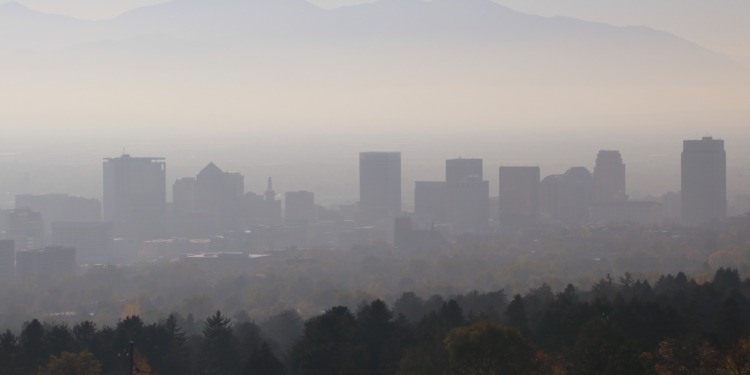A new study was published this Tuesday which analyses the effects of inhalable pollutant particles on foetal and gestational health. The particles in question are equal to and smaller than 2.5 micrometres – that’s approximately 3% the width of a human hair – and referred to as PM2.5.
Despite their minuscule size, these particles have serious capacity for harm.
The study, which appeared in Nature Communications, estimates that nearly one million stillbirths per year may be the result of gestational exposure to inhalable air pollutants. The pollution primarily originates from the burning of fossil fuels.
The study is the first of its kind in terms of scope, with data on stillbirths and air pollution from 1998 to 2016 being taken from 54 countries. On the basis of this data, the study estimates how many stillbirths are linked to gestational PM2.5 exposure across 137 low- and middle income countries in Latin America, Asia and Africa. Notably, 98% of global stillbirths occur in these countries.
The vast majority of mothers in the data set were exposed to PM2.5 levels which exceeded the WHO’s upper limit deemed safe for pregnant women. Overall, the researchers estimate that around 40% of total stillbirths are attributable to PM2.5 pollution.
Needless to say, correlation does not equal causation. But evidence of the latter is accumulating rapidly. Toxic pollution particles were first found in placentas in 2018 at Queen Mary University of London.
In October of this year, particles were detected in the lungs, brains, and other organs of unborn foetuses – thousands of black carbon particles per cubic millimetre of tissue, as reported by the Guardian. This groundbreaking discovery evidenced that pollutants inhaled by mothers can travel through the mother’s bloodstream and placenta and enter the foetus.
Related Articles: There’s No Safe Level of Air Pollution | Laying Down the Law on Air Pollution | Wildfire Smoke Is Choking Indigenous Communities | Finding the Unexpected in Expectant Women: Microplastics Discovered in Human Breast Milk
A notable 16.5% fall in stillbirths between 2010 and 2019 may be further evidence of causation. The scientists behind the study have said that this fall may be at least partially attributable to reductions in air pollution – such as those following a move away from coal plants in China – and estimate that 710,000 stillbirths a year may be prevented by reducing air pollution to safer levels.
How exactly air pollution causes the health conditions and fatality that it has been linked to is not entirely clear. However, the report lays out that when a pregnant mother inhales toxic particles, they enter her bloodstream, and from there can pass through the placental barrier. This may trigger foetal injuries related to either reduced oxygen levels or abnormal activity of immune cells.
These injuries can cause “irreversible embryonic damage”, resulting in stillbirth. In addition, gestational PM2.5 exposure can cause malformations of the placenta, preventing it from properly sustaining foetal development. Finally, such exposure can also reduce maternal oxygen levels and in turn inhibit the mother’s ability to pass oxygen to her foetus.
Why is stillbirth intervention important?
The United Nations has described the “global burden of stillbirths” as “a neglected tragedy”. The recent report echoes this, emphasising that in stillbirth prevention, clinical factors are disproportionately considered, while environmental factors are largely disregarded.
Indeed, the detriment resulting from this neglect is not confined to the event or experience of stillbirth. Its implications reach much further. Tuesday’s report lays out that “the economic costs of stillbirth (including health-care costs and loss caused by the incapacity to work) affect individuals, healthcare systems, and society”, and posits that widespread stillbirth is therefore a barrier to sex equality and economic development.
Secondly, linking the death of unborn children to pollution adds a new dimension to discussions around environmentalism. Neglecting this correlation is to give a reductive representation of the impact of environmental pollution.
The link between foetal mortality and PM2.5 illustrates the pervasiveness of environmental pollution and therefore the urgency of the situation at hand. The growing bulk of evidence on the subject suggests that without a drastic reduction of air pollution, this “global burden” of stillbirth will not be alleviated.
Editor’s Note: The opinions expressed here by the authors are their own, not those of Impakter.com — In the Featured Photo: Smog on city skyline. Featured Photo Credit: Wikimedia Commons










